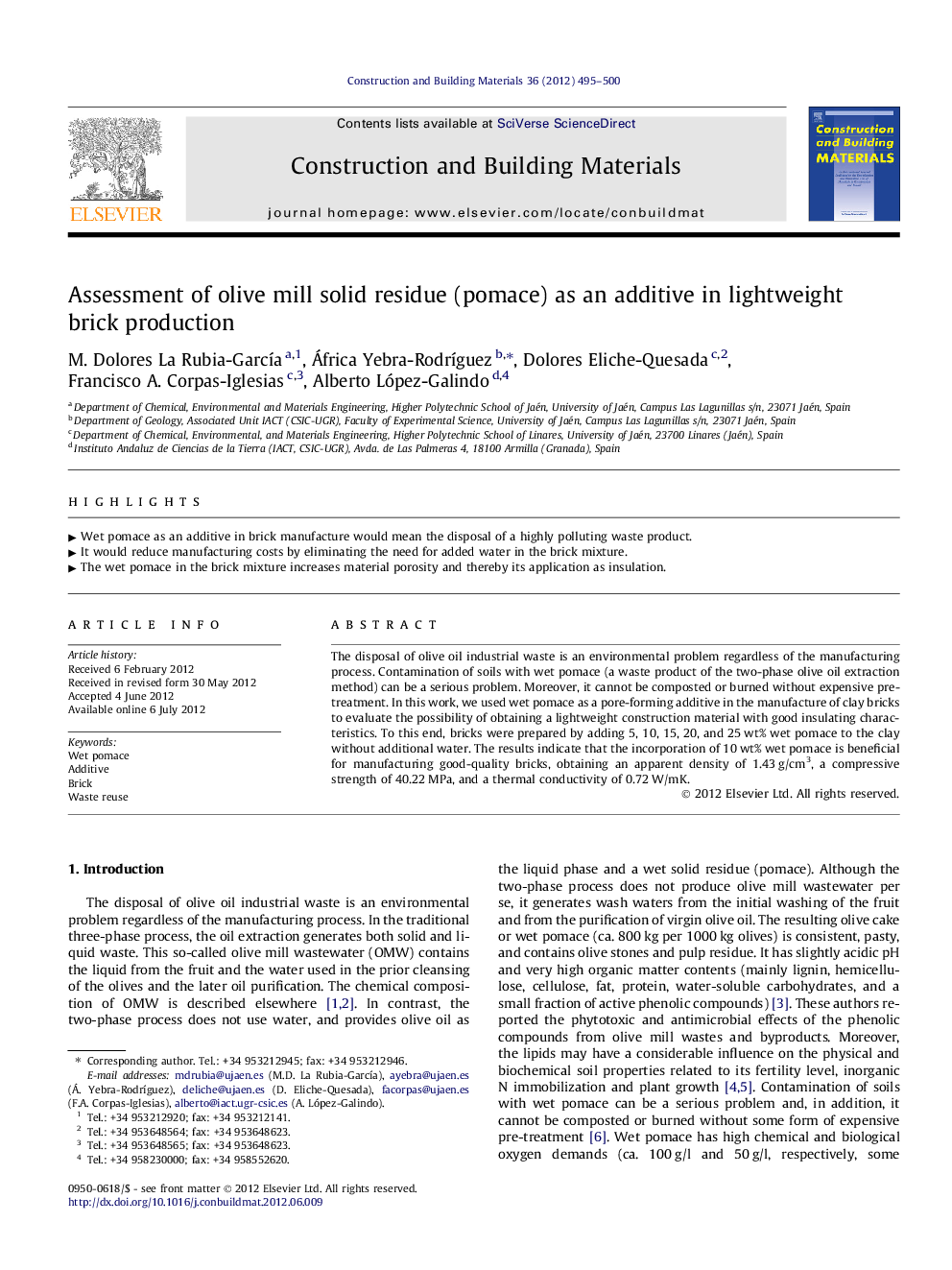| Article ID | Journal | Published Year | Pages | File Type |
|---|---|---|---|---|
| 258645 | Construction and Building Materials | 2012 | 6 Pages |
The disposal of olive oil industrial waste is an environmental problem regardless of the manufacturing process. Contamination of soils with wet pomace (a waste product of the two-phase olive oil extraction method) can be a serious problem. Moreover, it cannot be composted or burned without expensive pre-treatment. In this work, we used wet pomace as a pore-forming additive in the manufacture of clay bricks to evaluate the possibility of obtaining a lightweight construction material with good insulating characteristics. To this end, bricks were prepared by adding 5, 10, 15, 20, and 25 wt% wet pomace to the clay without additional water. The results indicate that the incorporation of 10 wt% wet pomace is beneficial for manufacturing good-quality bricks, obtaining an apparent density of 1.43 g/cm3, a compressive strength of 40.22 MPa, and a thermal conductivity of 0.72 W/mK.
► Wet pomace as an additive in brick manufacture would mean the disposal of a highly polluting waste product. ► It would reduce manufacturing costs by eliminating the need for added water in the brick mixture. ► The wet pomace in the brick mixture increases material porosity and thereby its application as insulation.
